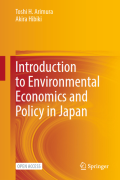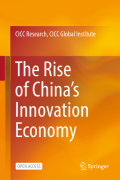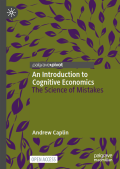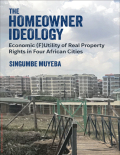
Achieving UN Sustainable Development Goal 8: Economic Growth and Decent Work …
The book gathers global evidence and policy analysis to show how sustainable growth and decent work—core aims of Sustainable Development Goals (SDG) 8—can be pursued without harming the environ…
- Edisi
- -
- ISBN/ISSN
- -
- Deskripsi Fisik
- -
- Judul Seri
- -
- No. Panggil
- 331.88 Del A

Circular and Transformative Economy Advances towards Sustainable Socio-econo…
This book maps a shift from linear to circular economies, showing how waste, water, food, and sanitation systems can be transformed to support sustainability, equity, and resilience. Through global…
- Edisi
- -
- ISBN/ISSN
- -
- Deskripsi Fisik
- -
- Judul Seri
- -
- No. Panggil
- 338.7 Nha c

Capitalism Reconnected: Toward a Sustainable, Inclusive and Innovative Market…
This book argues that European capitalism has strayed — marred by inequality, environmental strain, and short-term thinking — and offers a roadmap to reconnect markets with core values like inc…
- Edisi
- -
- ISBN/ISSN
- -
- Deskripsi Fisik
- -
- Judul Seri
- -
- No. Panggil
- 330.12 Pet C

The Future of Labour: How AI, Technological Disruption and Practice Will Chan…
As AI and digital tools remodel workplaces globally, this book shows how jobs, institutions, and livelihoods must adapt. From hybrid work and gig platforms to automation and welfare-state reforms, …
- Edisi
- -
- ISBN/ISSN
- -
- Deskripsi Fisik
- -
- Judul Seri
- -
- No. Panggil
- 331.25 Lar T

Introduction to Environmental Economics and Policy in Japan
This textbook uses Japan’s policy experiences—carbon pricing, waste-fees, air-emissions controls—to illustrate how economic theory informs environmental policy. It leads readers from market-f…
- Edisi
- -
- ISBN/ISSN
- -
- Deskripsi Fisik
- -
- Judul Seri
- -
- No. Panggil
- 333.7 Ari I

The Rise of China’s Innovation Economy
This book traces China’s transformation from a manufacturing-based economy to a global innovation powerhouse. It highlights how government policy, entrepreneurship, and research institutions driv…
- Edisi
- -
- ISBN/ISSN
- -
- Deskripsi Fisik
- -
- Judul Seri
- -
- No. Panggil
- 338.951 Res T

An Introduction to Cognitive Economics
This book redefines economics through the lens of human cognition, emphasizing how people actually think, decide, and behave in markets. It challenges traditional rational models, drawing from psyc…
- Edisi
- -
- ISBN/ISSN
- -
- Deskripsi Fisik
- -
- Judul Seri
- -
- No. Panggil
- 330.01 Cap A

"Japan’s Financial System New Perspectives and Potential Risks in the Post…
This volume analyzes Japan’s financial landscape after the global financial crisis, highlighting structural changes, regulatory responses, and emerging vulnerabilities. It assesses banking reform…
- Edisi
- -
- ISBN/ISSN
- -
- Deskripsi Fisik
- -
- Judul Seri
- -
- No. Panggil
- 332.0952 Fuk J

Blockchain, Crypto Assets, and Financial Innovation
This book delves into how blockchain and crypto assets reshape financial systems, driving innovation and challenging regulation. It discusses decentralized finance, digital asset valuation, and ris…
- Edisi
- -
- ISBN/ISSN
- -
- Deskripsi Fisik
- -
- Judul Seri
- -
- No. Panggil
- 332.178 Ger B

The Homeowner Ideology: Economic (F)Utility of Real Property Rights in Four A…
Muyeba explores the role of homeownership in four African cities, analyzing whether formal property rights enhance economic security or limit opportunities. He challenges assumptions about ownershi…
- Edisi
- -
- ISBN/ISSN
- -
- Deskripsi Fisik
- -
- Judul Seri
- -
- No. Panggil
- 333.338 Muy T
 Karya Umum
Karya Umum  Filsafat
Filsafat  Agama
Agama  Ilmu-ilmu Sosial
Ilmu-ilmu Sosial  Bahasa
Bahasa  Ilmu-ilmu Murni
Ilmu-ilmu Murni  Ilmu-ilmu Terapan
Ilmu-ilmu Terapan  Kesenian, Hiburan, dan Olahraga
Kesenian, Hiburan, dan Olahraga  Kesusastraan
Kesusastraan  Geografi dan Sejarah
Geografi dan Sejarah